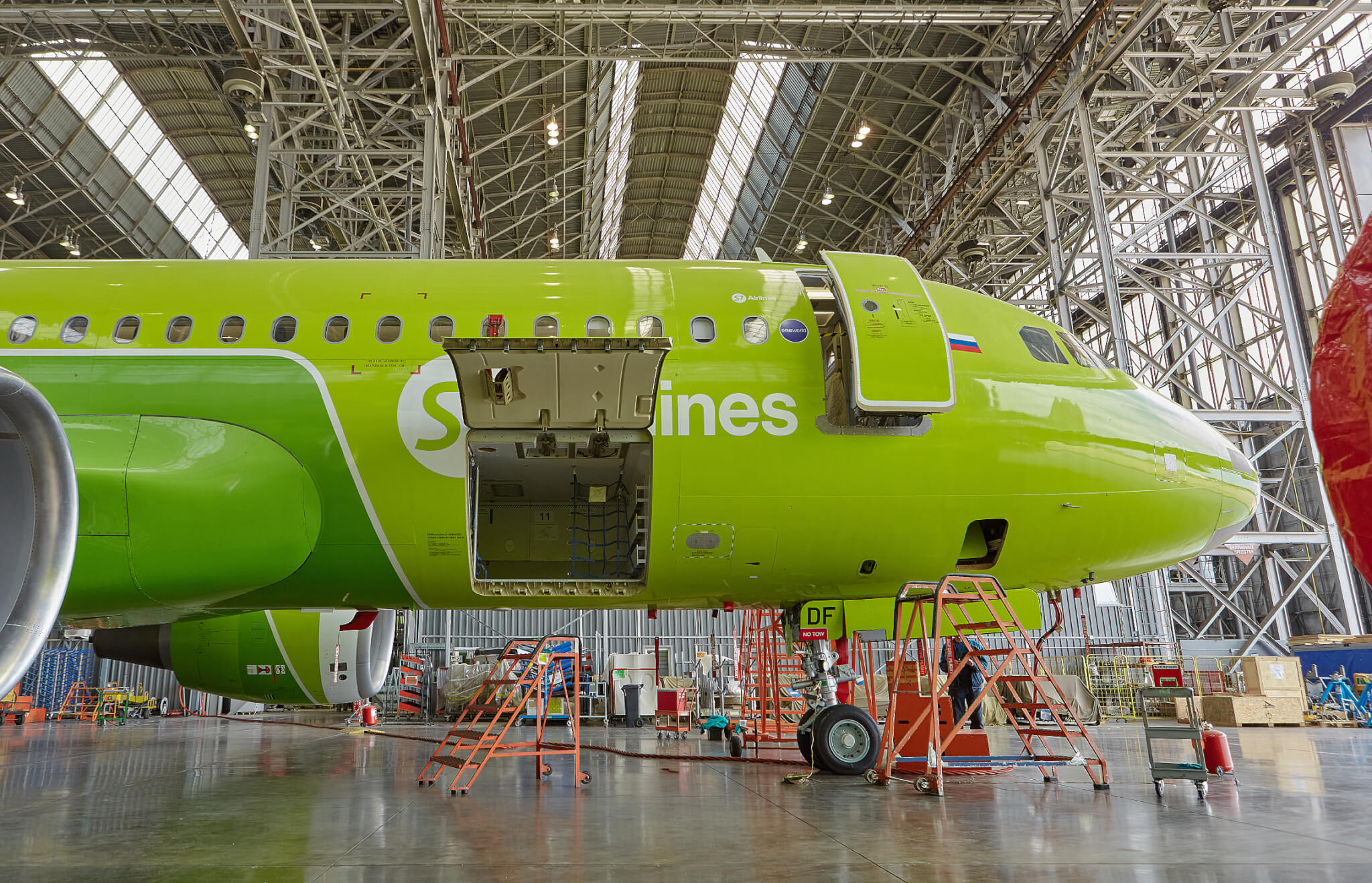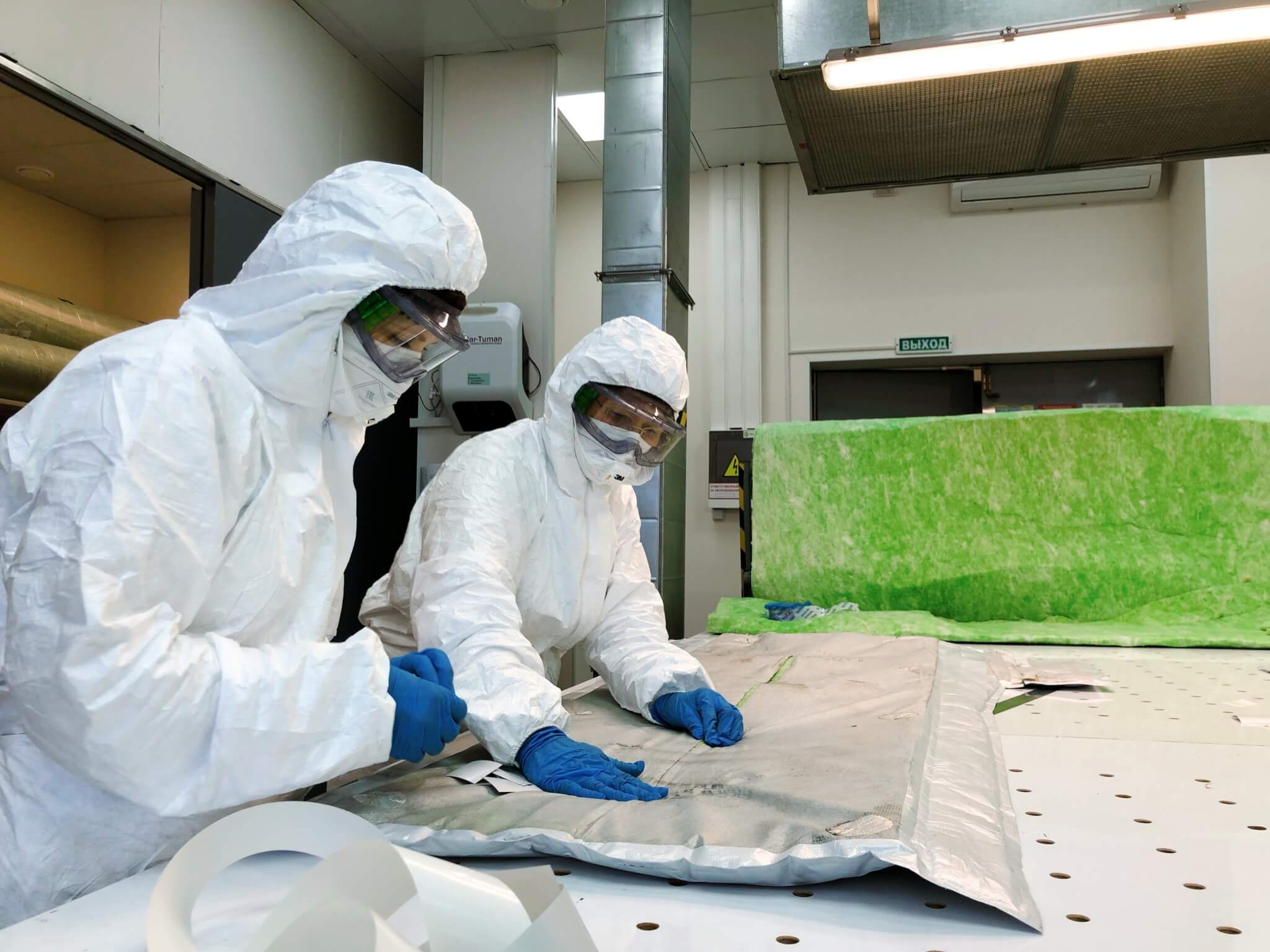Interview with Vladimir Perekrestov: “Russia is no longer the country of ‘cheap labour’”
Vladimir Perekrestov, CEO of S7 Technics, shared his views about the future of MRO industry and path that S7 Technics has chosen
Vladimir Perekrestov, the general director of Russian maintenance, repair and overhaul (MRO) company S7 Technics, the country’s largest aircraft technical services provider, shares his insight on the industry’s future with Russian Aviation Insider’s sister publication ATO.ru.
What’s in store for the Russian MRO market overall? Obviously, the airframe maintenance business has come close to saturation, and therefore outstanding growth is unlikely. However, there may still be some organic growth in this segment, but it is still quite limited.
Both base and line maintenance currently generates zero or negative profitability. The market definitely offers growth opportunities, but they mostly lie in specific niches with a high entry barrier, requiring a measured approach and tens of millions [of roubles] investments.
How does S7 Technics plan to develop its operations? We’re now working on boosting our capacities whilst introducing new products and measures, the main one being the overhaul of CFM56 engines and the repair of auxiliary power units (APUs).
A year ago we signed an agreement for creating a repair facility for Honeywell-produced APUs, something which has previously never been attempted in Russia but we believe that now the time is ripe.
At what stage is the project? We estimate the facility at Sheremetyevo International Airport in Moscow should become operational within a year. The design is currently being finalised and we are purchasing equipment and training staff.
How is your exploration of niche areas of business progressing? We’re continuously searching for new niches and want to progress jointly with Russian and international partners. For instance, in terms of production, S7 Technics is planning to launch a new facility producing soft parts of passenger seats at its Mineralnye Vody site. And, we’re also expanding the number of parts for passenger cabins that we produce in-house.
Sister S7 Airlines doesn’t operate any Russian-built aircraft anymore. Are you taking any interest in the Russian aerospace manufacturing sector? Our most recent experience was jointly creating several units of a Customer Relationship Management (CRM) manual for structural repairs last year, with a team of engineers from Irkut Corporation’s regional aircraft division (formerly Sukhoi Civil Aircraft founded in 2000 to develop and promote new Superjet 100 aircraft) and other industry partners. We are currently signing the contract for the second stage of the CRM project.
With regards to the Irkut, Russian-made MC-21 aircraft, which is a Russian single-aisle twin-jet aircraft, this looks like an interesting prospect. As a private business we’re screening for projects that are potentially profitable, so we’re not focused entirely on specific aircraft types operated by S7 Airlines. Moreover, we hope to increase the share of business generated by third-party customers from 43 per cent last year to 50 per cent this year.
What, in your view, is the most pressing issue facing Russia’s MRO industry? Trivial as it sounds, it’s human resources. Both in Russia and beyond, the shortage of qualified workers and certified technicians is critical and, as a result, maintenance companies are being forced to compete for staff.
Russia has stopped being the country of cheap labour. In fact, price-wise, it’s becoming increasingly difficult to compete, especially with service providers in eastern Europe, Turkey and maybe, for instance, Mongolia.
If labour efficiency remains at the same level – and improving this is a priority target for our company – then I don’t see why Russian airlines would opt to maintain their fleets in Russia instead of outside. Besides, many airlines are creating their own in-house maintenance divisions for both line- and base maintenance. This is further aggravating the staff shortage issue and drives the costs. It’s a lose-lose situation.
Is this already directly affecting your company’s financial performance, or is it a theoretical problem that may materialise in the future? Tight competition always reduces the margins. So, the competition has shifted to the level of product quality and whether an organisation has some additional competencies that others do not [possess].
So what do you envision is the future for those companies that have only the European Aviation Safety Agency (EASA) Part-145 Aapproval, which is a company level certification of the European Commission’s regulation standards of design, production, maintenance and operation of aircraft components? Such companies do not exist any more. Every business is either trying or has already found their own niche, within which they are able to develop.
At the moment Part-145 businesses alone generate little profit, but it at least allows companies to stay in the black. However, if nothing changes in terms of efficiency and salaries, I don’t think this situation will last much longer. If you consider heavy checks for example, creating an in-house division for an airline with a fleet of under 50 units doesn’t make any sense. This scenario will only generate losses.
So why do airlines ever get involved in the Part-145 business? Because making calculations is still not a habit in Russia, and these expenses are often just registered under an airline’s general costs. Therefore, conclusions are often based on bad judgements, which leads to such a lack of foresight. But we prefer to follow a long-term strategy and that’s why, for example, we have secured Part-21 approval. It’s not about who raises most profits in one instance, it’s about who reaches the finish line and remains the only survivor under all of the factors affecting the business.” An EASA Part-21 certificate regulates the approval of aircraft design and production organisations and the certification of aircraft products, parts and appliances.
In the near future, can this staff shortage issue, which is having a knock-on effect on other industries, be resolved with robots? That is unlikely and definitely not during my lifetime, because 80 per cent of the work requires personal inspection and decision-making by a specifically-trained individual.
Are we to understand that you don’t agree with robotics in aircraft maintenance? What is your company’s philosophy in this regard? It’s not a question of my agreeing or disagreeing. Society is moving in this direction in many different ways. But, as a company, we are interested in being among those who think and do rather than practice non-disruption. Getting money without doing anything – that’s not us. We like to work because that’s what keeps us progressing.
What is S7 Technics’ global ranking? We’ve still got a long way to go to match global industry leaders such as our partners SR Technics or Lufthansa Technik, for example. To get anywhere close, we’ll have to improve our performance by 20 per cent – but we’re getting there. Today, S7 Technics is one of the leading aircraft MRO providers in Russia and CIS.
How has the MRO business changed in recent years? What’s propelling the industry and what’s hindering it? If you mean Russia, just a decade ago, the aircraft maintenance business was just beginning to take shape. Now, the fleet structure of airlines has changed significantly and this has influenced out business as well.
Today we focus on a relatively narrow but most popular segment, the Airbus A320 and the Boeing 737 family of aircraft. These types of aircraft used to leave Russia for their maintenance, but this has now changed radically. Narrow-body aircraft, which make up the bulk of Russia’s combined fleet, are now mostly maintained inside the country.
Changes in Customs taxes have also rejuvenated commercial aviation, including the MRO business. The rapid devaluation of the rouble in 2014 is among the factors that radically changed the face of the industry because the devaluation led to extensive growth in the amount of work which could be conducted locally, a development which resulted in healthy business growth.
I would also like to specifically point out the success of re-delivery checks in Russia. In 2010, it was inconceivable that GE Capital Aviation Services [the world’s leading aviation lease finance company for commercial jets, engines and helicopters] would accept Aeroflot’s aircraft from S7 Technics. Today the world’s leading lessors are willing to accept re-delivery checks in Russia, which I view as a sign of a radical change in our industry.
Engineering Holding, a Russian company specialising in aircraft maintenance, repair, and overhaul, has recently been restructured. What has changed? Two MRO providers – S 7 ENGINEERING and Sibir Technics – have merged. So Engineering Holding, which used to operate both MRO and industrial activity under the S7 Technics brand name, has now separated these two businesses.
The corporate brand name S7 Technics now applies exclusively to the S 7 ENGINEERING merged with Sibir Technic, which manages three heavy maintenance bases at Domodedovo International Airport in Moscow, Mineralnye Vody airport and Tolmachevo International Airport in Novosibirsk, as well as line stations at Vladivostok, Irkutsk and Yakutsk. All of the appropriate licences and certificates, including EASA Part-145 and EASA Part-21J, have been fully transferred to S 7 ENGINEERING.
In turn, Engineering is to focus on industrial research, development and production and will have the Penza-based Special Design Bureau for turbochargers, the S7 Development Centre, as well as Project Victory, a light business/utility aircraft project under its wing, along with some other production and engineering assets. It will also manage the Novosibirsk-based TAT Engineering, joint venture with TAT Technologies, which specialises in aircraft heat exchanger system repairs.
Company news
2021 for S7 Technics, Russia’s leading aircraft MRO provider, was the year of breaking new ground and adding new operations and services to its capability list. Gradual recovery of Russian airlines’ flight hours translates into increasing volumes of MRO.
S7 Technics among the first MRO organizations in Russia started offering redelivery checks several years ago as a comprehensive one-stop-shop service. S7 Technics chief engineer Leonid Shoshin and sales director Nikita Belykh told about the experience in completing redelivery checks the provider has accumulated during the pandemic.
S7 Technics, Russia’s leading provider of aircraft maintenance, repair and overhaul (MRO) services has launched a new facility within its cabin interior repair shop, which is part of the company’s maintenance base at Moscow Domodedovo Airport (DME).
S7 Technics, Russia’s leading aircraft maintenance, repair and overhaul (MRO) service provider, announces the launch of the production of polyurethane foam cushions for aircraft seats (seats, backrests and headrests).



